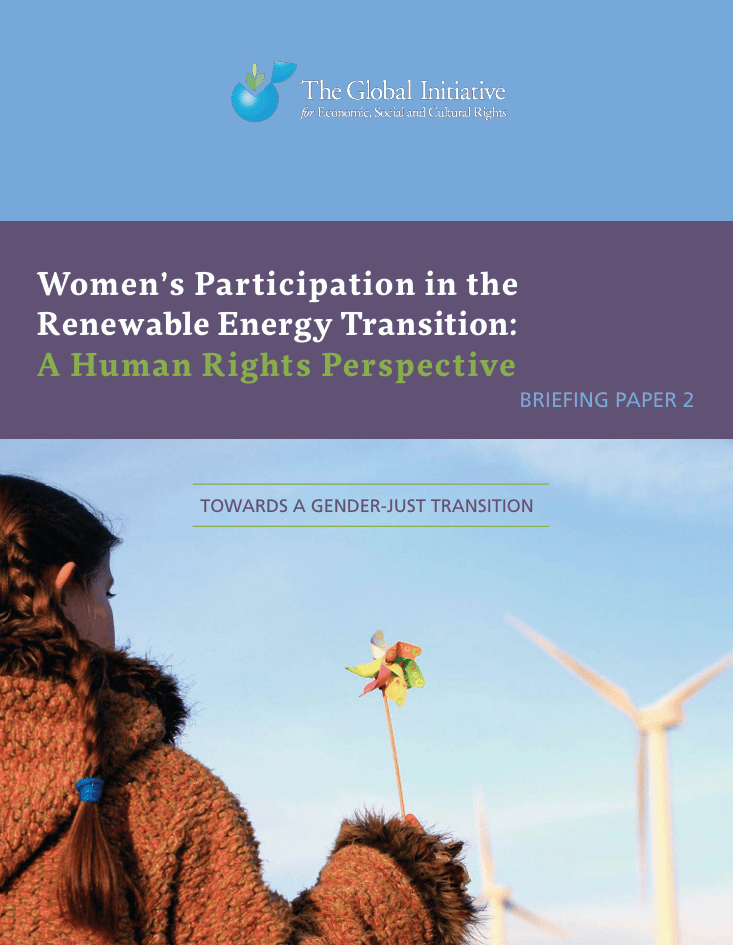Women's Participation in the Renewable Energy Transition: A Human Rights Perspective
 |
La participation des femmes dans la transition énergétique et les énergies renouvelables
Towards a gender-just transition
note Dec 2021 ; 71 pages
Aut. Alejandra Lozano & Tom Bagshaw & Juliette Wyss
Ed. GERES - Aubagne
Téléchargeable sous format: PdF
Téléchargeable chez l'éditeur
Résumé:
La transition énergétique est devenue une obligation pour enrayer l’urgence climatique. Afin de garantir une transition plus équitable et plus juste que ses prédécesseurs, les États et les autres parties prenantes doivent veiller à ce que les femmes aient le droit de participer à la transition énergétique. L’un des moyens de parvenir à une participation significative des femmes à la transition énergétique est de s’appuyer sur le droit international des droits humains.
Face aux défis de la transition énergétique, il serait incorrect de ne pas intégrer la participation des femmes au sein de la transition.
Ce document d’information propose des solutions pour intégrer au mieux les femmes dans la transition énergétique et les énergies renouvelables. Parmi les recommandations, le collectif Empowermed, dont le Geres est membre, propose des idées et des solutions pour les femmes vivant sur la côte méditerranéenne. Abstract:
The energy transition has become imperative to halt the climate emergency. In order to guarantee that the transition is more equitable and just than its forbearers, States and other stakeholders must ensure women’s right to participate in the energy transition. One of the keyways to achieve women’s meaningful participation in the energy transition is through leveraging international human rights law.
Given the vastness of the energy transition, it would be incorrect to homogenise women’s participation within the transition. Nevertheless, three key points can be made: we must engage with the substance of energy policies or projects that purport to be “participatory” to identify how this participation took place and if it was truly effective.
This requires for example, undertaking a gender intersectional analysis and searching for ‘participatory exclusions’, disaggregating gender itself so women are also empowered to engage. Finally, questions of women’s participation must be willing to engage openly with questions of power and politics.
This briefing paper proposes solutions to best integrate women into the energy transition and renewable energy. Among the recommendations, the Empowerment collective, of which Geres is a member, offers insights and solutions for women living on the Mediterranean coast. Contents:
Executive Summary 5
Introduction 11
International Human Rights Framework 12
Power, Gender and Participation 15
Status and Trends of Women’s Participation in Key Decision-Making Spaces in the Energy Transition 21
Recommendations to Advance Women’s Participation in the Energy Transition 33
Annex 65
Public-Cible:
Mots clefs: |
accès à l'énergie (CI) (DT) (OP) (ope) , genre (CI) (DT) (OP) (ope) , méditerranée (CI) (DT) (OP) (ope) |
Editeur/Diffuseur: |
|
GERES - Aubagne |
En cas de lien brisé, nous le mentionner à communication@pseau.org